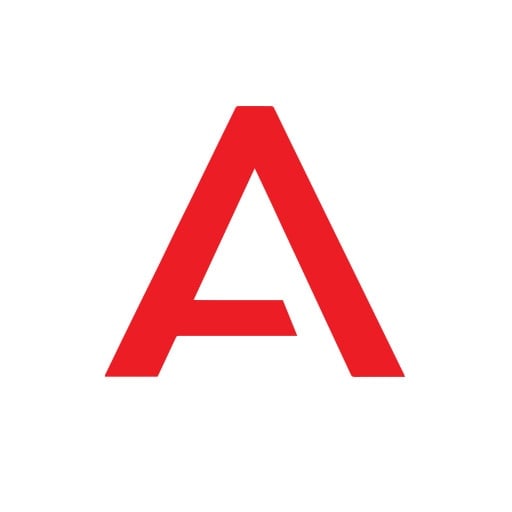Avaya’s Commitment to a Responsible Supply Chain
Avaya is a large, multinational company with a complex supply chain that includes thousands of suppliers and partners. It is important to us that our supply chain operates in a way that delivers the highest levels of ethical and sustainable operations so that we can assure our customers that their products and solutions are responsibly sourced and produced. These expectations span three key elements — economic, environment, and social responsibility — and particularly focus on eliminating child and slave labor, safe working conditions, fair pay and working hours, anti-bribery and corruption, and environmental awareness and sustainability.
Avaya is a member of the Responsible Business Alliance (RBA), a nonprofit coalition of leading companies committed to improving the ethical conditions of their supply chains. We strive to ensure that any supplier working with Avaya can meet the social and environmental conditions of the RBA’s Code of Conduct. Avaya’s own Supplier Code of Conduct (SCOC) includes all of the principles set out in the RBA Code of Conduct plus additional provisions that are unique to Avaya and our supply chain. In this article, we will review the various measures we are taking to have a responsible supply chain, why these measures are important to us, and the impact that these measures have on our customers, employees, and stakeholders.
Our Supplier Code of Conduct
Our suppliers are expected to uphold the same high ethical standards to which we hold ourselves. Avaya’s SCOC includes provisions related to:
- Labor – Suppliers must be committed to upholding human rights by treating their workers with dignity and respect. These labor standards include measures against forced labor, child labor, and discrimination; while also pushing for appropriate working hours, fair wages, and humane treatment.
- Health and Safety – Avaya suppliers must minimize work-related hazards. Suppliers must provide safeguarding for their machinery, a clean and sanitary work environment, and appropriate occupational safety measures. A safe and healthy work environment improves the retention and morale of employees as well as the quality of the product.
- Environment – Environmental responsibility is essential to producing world-class products and suppliers must understand and minimize adverse effects their operations have on the environment. We have laid out supplier standards for solid waste, air pollution, water management, greenhouse gas emissions, and more in our SCOC.
- Ethics – Our suppliers must uphold the highest standard of ethics by ensuring information is properly disclosed, no improper advantage is gained, and that intellectual property is respected.
Suppliers must implement a management system to ensure compliance with applicable laws and regulations, conformance to Avaya’s SCOC, and identification and mitigation of operational risks related to the SCOC.
You can read the Avaya Supplier Code of Conduct in its entirety for more information.
Human Rights
Avaya is committed to protecting human rights in every facet of our business. We maintain policies to identify risks and prevent the use of child labor, forced labor, modern slavery, and human trafficking in our business operations. We expect the same level of commitment from our suppliers, and although cultural differences may exist between nations, we do not compromise on the fundamental requirements set forth in our SCOC.
Supplier Diversity
A diverse supplier is a business owned or operated by a traditionally underrepresented group. Investing in diverse suppliers helps us build a more equitable world, as growing diverse businesses uplifts surrounding communities with new jobs, higher wages, and increased tax revenue. In turn, diverse suppliers provide a competitive advantage by providing multiple channels to procure goods and services.
Avaya’s Supplier Diversity Program is designed to create a supply chain that reflects the diversity of our associates and our customers. We are committed to incorporating the products and services of qualified vendors; this includes small minority, women, and service-disabled veteran business enterprises (MWDVBE) into our supply chain. Avaya strives to grow and expand its relationships with MWDBVEs by incorporating supplier diversity requirements in all our contracting and procurement initiatives. In the coming year, our organization will continue to grow our Supplier Diversity initiatives, procurement processes, and how we foster engagement with MWDVBE suppliers.
Sourcing Minerals Ethically
Most electronics, including Avaya products, contain tantalum, tin, tungsten, and gold (referred to as 3TG). These minerals, essential to product design, are sometimes known as “conflict minerals” because of concerns about their sale contributing to armed conflict and human rights abuses in the Democratic Republic of Congo and other neighboring countries.
We collaborate with our suppliers to source minerals consistent with our values around human rights, business ethics, labor, health and safety practices, and environmental responsibility. For more information, you may read our Responsible Minerals Policy and our 2021 Conflict Minerals Report in full.
Responsible Product Design
Responsible product design uses less energy, wastes fewer resources, and leads to a better customer experience.
We monitor environmental regulations and standards where we operate to ensure compliance throughout our product lifecycle. This includes designing our products with materials that comply with international directives and standards.
Our Design for the Environment management system helps us manage these risks and focuses on opportunities to reduce the impact of our products.
Avaya is making advances in reducing the amount of waste our products generate. We are currently improving the energy efficiency of our VoIP phones, thereby helping our customers meet their energy reduction goals. Our new J series phones are all ENERGY STAR certified, and our new IP phone products now have integrated Energy Efficient Ethernet (EEE) to reduce standby power consumption.
In addition, we are moving to consolidate all our product portfolios to two or three USB-C power supply models. This will allow customers to use USB-C power over all of their devices and help reduce electronic waste.
For more information, we recommend checking out these resources:
To learn more about our ongoing commitment to a responsible supply chain and high standards for integrity and professional conduct, view the 2021 Corporate Responsibility Report.
